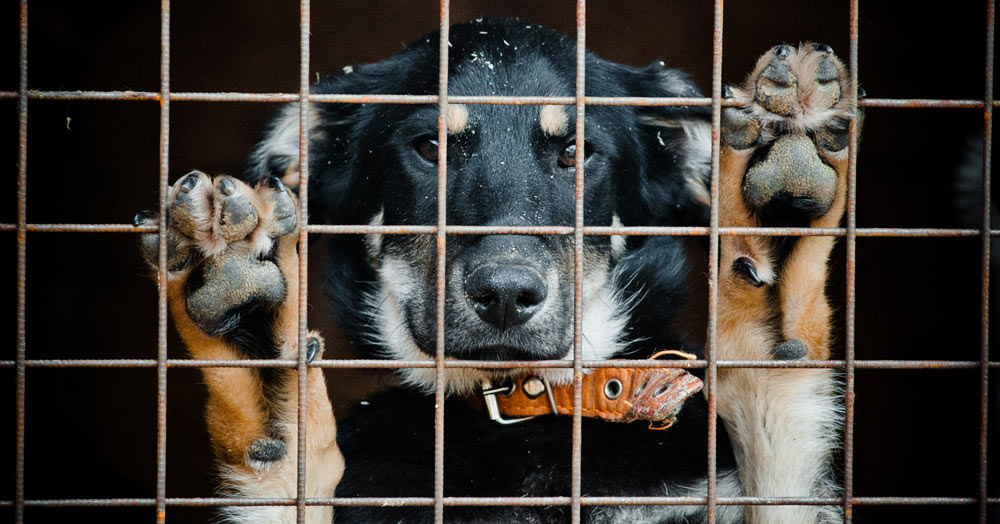Key Takeaways
There are many reasons to adopt a dog rather than buy, but here are seven of the most important:
- You’re potentially saving the life of the dog you adopt, while also freeing up space for another dog in the rescue.
- You’re supporting a non-profit that works to help dogs, rather than puppy mills.
- You’re helping to reduce the growing problem of pet overpopulation.
- Depending on the rescue, the dog you’re adopting should have been given health checks. Many rescues also provide treatments and even urgent surgeries before putting the dog up for rehoming.
- If you adopt a mature dog from a shelter, then there will be less uncertainty about their personality and temperament.
- There are dogs of almost all ages and breeds waiting to be adopted.
- Adopting a dog is nearly always much cheaper than buying a puppy.
At The Dog Clinic, we believe that prospective dog owners should adopt from a rescue or shelter whenever possible. There are millions of wonderful dogs who are waiting for a home, so there is often no need to buy from a breeder.
We understand that you might not be convinced yet though! So, with the help of IMDT dog trainer Rebecca Morello, here are seven of the most important reasons to adopt a dog rather than buy one.
Contents
1. Save Canine Lives
According to the ASPCA, roughly 1.5 million dogs enter animal shelters throughout the United States each year. Of those, more than a fifth will be euthanized.
Some of these dogs are euthanized because they are sick, injured, or aggressive, but in many cases, the reason for euthanasia is simply overpopulation. Shelters take in more dogs than are adopted, leaving some with no choice but to euthanize less adoptable dogs.
When you adopt a dog, you save it from that. Even if you adopt from a no-kill shelter, you’ve still saved a dog’s life by making room for another dog that would have been homeless or gone to a kill shelter.
“I truly believe that if you have the time and space for a dog, then adopting one that needs a home is one of the most rewarding things you can do,” adds Rebecca Morello, IMDT dog trainer.
2. Support a Nonprofit Instead of Puppy Mills
In addition to directly saving a life, your adoption fee funds an awesome nonprofit dedicated to dog welfare.
Local shelters put a lot of work into protecting animals in your community, while national organizations like the ASPCA, Battersea Dogs Home in the UK, and the Humane Society of the United States not only work with animals, but also help change laws to protect animals.
On the other hand, buying dogs from pet stores supports puppy mills. These companies breed as many dogs as possible in order to profit, with little to no regard for the health and socialization of their breeding dogs or puppies they produce.
Dogs from puppy mills are also often inbred and kept in unsanitary, overcrowded conditions. In the worst cases, dogs who are no longer fertile are killed or abandoned.
When you adopt, your money supports people who help animals, not someone hurting them to make a profit.
3. Avoid Contributing to Pet Overpopulation
Pet overpopulation is a large contributor to the number of dogs in shelters. As we mentioned earlier, there are simply more dogs coming into shelters than are adopted.
When people buy from puppy mills, and even from breeders who treat their dogs humanely, new dogs are bred to meet this demand. In contrast, when you adopt from a shelter, you reduce the demand for breeding and remove a pet from overpopulated shelters.
In addition, rescues nearly always spay and neuter their dogs, which prevents accidental litters that further contribute to pet overpopulation.
Note: Adopting an older dog may also be more suitable for elderly people. Senior dogs tend to be less energetic than a puppy, amongst other benefits.
4. (Potentially) Get a Healthier Dog

It’s a common myth that shelter dogs are unhealthy, but many rescue dogs are often healthier than dogs produced by puppy mills and even by reputable breeders. There are several reasons for this.
Firstly, dogs in rescue centers are given health checks by veterinarians. If the rescue is well-funded, the dogs may also be provided with any required treatments or surgery before being rehomed. Furthermore, reputable rescues are careful about vaccination and other forms of disease prevention because diseases can spread so easily in a shelter.
Of course, not all rescues are the same regarding healthcare. There’s a big difference between reputable, well-funded rescues and those struggling to raise enough money to operate. For this reason, you should always ask about what treatments and vaccinations a dog has had before adopting.
Another myth is that purebreds are healthier than mixed-breed dogs. In fact, mutts are more likely to be healthy, because there is less chance of inbreeding.
5. Get a Dog With Less Behavioral Uncertainty
Shelters want their dogs to be as adoptable as possible, so reputable rescues assess each of their animals. You shouldn’t expect a highly trained and socialized dog – many shelter dogs were strays or mistreated – but a reputable shelter will at least be aware of the dog’s training and behavioral needs and provide a plan for new owners.
“Shelter dogs have a reputation for being difficult and unpredictable,” says Morello. “But the truth is that no puppy or dog is a blank slate. I often see families who have bought a young puppy and given them a loving and supportive home, only to find they develop resource guarding or anxiety issues.”
“In many ways, it’s easier for a new owner to understand an older dog’s temperament when adopting from a shelter, as the dog is mature and will have undergone behavioral assessments,” she adds.
Of course, behavior problems can still crop up with any dog. Transitioning from a shelter to a home is exciting for both you and your dog, but it can also be overwhelming. In addition to training, choosing a breed, age, and temperament suited for your lifestyle will make the transition easier.
You’ll also still need to work with your dog to reinforce their training and address any behavioral issues. At The Dog Clinic, we only recommend using positive reinforcement training methods, as these provide the best results and are the most ethical.
“Many dogs coming into shelters sadly do have traumatic backgrounds and need extra love, care, and training” adds Morello. “But this is often why owners of rescue dogs have such a strong bond.”
6. Choose from a Greater Variety of Dogs

Shelters have a diverse selection of dogs, so you can find a pup that works for you, no matter what you’re looking for.
For example, just because you’re adopting doesn’t mean you can’t get a puppy. Shelters regularly take in new litters of puppies due to people not spaying and neutering their dogs. If young puppy energy and housetraining don’t suit your lifestyle, you can adopt a juvenile or adult dog instead. There’s even the option of giving a senior dog a second chance during their golden years.
You also get your choice of breed, big or small. Approximately 25% of shelter dogs are purebred, so don’t rule out shelters because you’re looking for a purebred dog, especially if you’re looking for a more popular breed. In fact, there are many rescues that specialize in particular breeds.
Since shelter animals typically undergo temperament evaluations, you should also know about a dog’s temperament before you adopt. This is particularly useful if you have specific requirements, such as a dog that’s suitable for apartment living or living with other pets.
7. Adopting a Dog is Often Cheaper
Adopting a shelter or rescue dog is nearly always cheaper than purchasing a puppy.
The most obvious reason is that adoption fees are much less than purchase fees, but this isn’t the only saving.
Vaccinations and microchipping may be covered by your shelter. And if you adopt an adult dog, then you won’t need to upgrade their equipment as they grow. This can be a significant saving, especially for dogs that get big!
Of course, you should always check what’s included with the adoption fee, as policies vary a lot between rescues. You also shouldn’t expect any veterinary bills to be paid after the adoption (unless you’re just providing a temporary foster home.) Once you rehome a dog, you’ll be responsible for any future expenses.
Tip: Read our article on the true cost of dog ownership to learn more about how much you can expect your new pet to cost.
Summary
When you decide to add a new dog to your family, adopting a dog from a shelter or rescue can be a great choice for both you and the dog.
Adopting isn’t just a way to help your new furry friend though – it also benefits other dogs by freeing up space at the rescue. Additionally, getting a rescue dog means you aren’t supporting puppy farms, and is one of the most rewarding experiences for any dog lover.
Have any questions about the reasons to adopt a dog from a rescue? Ask away in the comment section below! If you’re considering getting multiple dogs, you may also want to read our guide to how many dogs is too many.




